Signs Of Ovulation After Stopping The Pill
.png?v=1669657374344)
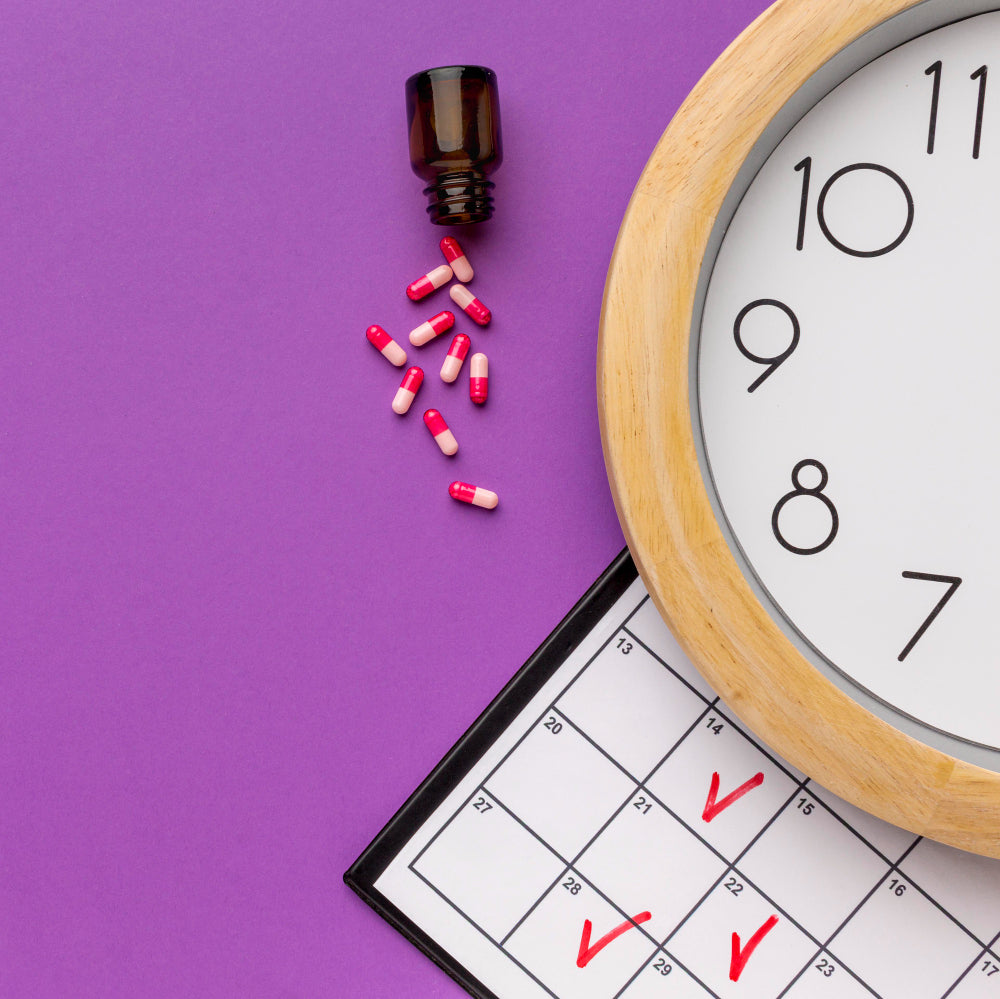
Related products
What’s covered?
If you're looking to have a child but you've been on birth control, you may be concerned about how it may impair your capacity to conceive. Quitting a birth control method that involves the use of the hormones progestin or oestrogen, means that it may take you a bit longer to get pregnant. But take note that this has no long-term influence on your ovulation. Here's what you should understand about ovulation after stopping the pill.
Does Discontinuing The Pill Cause Ovulation?
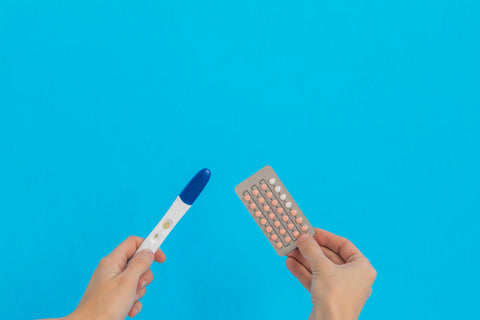
The contraceptive pill prevents your reproductive system from ovulating, but the cycle resumes if you quit using it. So you might become pregnant as soon as you stop using the pill. Within one year of beginning to have frequent intercourse without contraceptives, approximately 84 out of 100 partners will become pregnant. These figures fluctuate according to age, but it's fair to assume that you will have to utilise another type of contraception if you do not wish to become pregnant and aren't on the pill.
What Are The Signs That You Are Ovulating After Using A Birth Control?
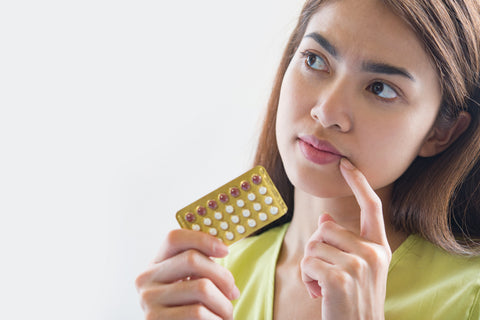
While everybody's response to stopping the pill will be unique, we've compiled a list of the frequent symptoms you may encounter.
Basal Body Temperature
The American College of Obstetricians and Gynaecologists (ACOG) state that most women will notice a small but observable increase in their average body temperature soon after ovulation. It is feasible to identify ovulation by measuring your basal body temperature early every day before you woke up and charting the findings on a basal body temperature chart. Temperature data may, however, be affected by situations like fever, disturbed sleep, and exercise.
Modifications Throughout Your Menstrual Cycle
When you had irregular menstruation periods before using the pill, you may notice that things become complicated once you quit. Whenever you stop using contraceptive pills, your system will want to return to its normal state. As a result, you may experience heavy menstruation or distinct PMS signs since taking the birth control pill. You may also notice some withdrawal bleed or spotting at this point.
Furthermore, age may also influence how your body reacts after quitting the drug. For instance, when you are nearing menopause, your cycles might become more inconsistent. If you experienced painful period signs as a teenager but continued to use different birth control methods afterward, you may have outgrown several of them. When you have stopped using the pill and are concerned about how your body is behaving, ask for guidance from a health expert who could assist you rule out underlying illnesses such as endometriosis, fibroids, or PCOS.
Ovulation Pain
Several individuals suffer ovulation discomfort, cramping, or twinges whenever an egg is produced, also known as mittelschmerz. Symptoms involve mild to moderate pain that might be subtle or acute. It often lasts just several minutes to a few hours, although sometimes it can last up to a day or two.
Increase Libido
This is an intriguing result that you may observe, mainly if you've been using birth control methods for a long time. Birth control serves to maintain our hormonal changes and keep them stable throughout the month, and if you're on a smaller dose variant, your sex drive may have dropped. However, once a woman is no longer on a contraceptive, it could be observed that she has a heightened libido. It's all due to progression, and it stands to reason for our sex drive to boost at times, such as around ovulation.
Moreover, throughout this time, oestrogen levels rise, and there appears to be a link between libido and oestrogen. Oestrogen is at its peak to induce ovulation; however, testosterone also frequently coincides with certain of those impulses. On the other hand, women may notice an increase in desire around the period of their menstruation. At this moment in your period, progesterone and oestrogen are at all-time low points, but testosterone is also high in contrast, which may have an influence.
Breast Tenderness
Tender or aching breasts may indicate ovulation. This is linked to hormonal fluctuations. However, although some people feel painful breasts shortly before ovulation, others have reported that their breasts become sensitive. Breast pain may also be a potential early sign of pregnancy.
Acne Breakouts
If you use birth control pills to manage your acne, you may see fewer outbreaks than average. As your skin adjusts to your increased hormone levels, it may become oilier, resulting in more acne. On the other hand, some women have reported experiencing cleaner skin after discontinuing the pill. Regardless of which side you find yourself on, the changes may only be temporary. The majority of post-pill adverse effects go away within a few months.
Mood Changes
Some individuals experience mood fluctuations upon discontinuing birth control, whereas others claim their mood is enhanced. Because hormones substantially impact your mood, it is natural for it to vary as everything readjusts. And if you're not feeling like yourself or having problems with your emotions or psychological health, seek out somebody you trust.
Changing Discharge
Along with all of the other alterations, such as the start of ovulation and increased desire, you might detect certain modifications in your vaginal secretions. This is not a cause for concern; your cervix merely generates mucus in reaction to altering hormones, which is now changing.
In addition, because of the pill's continual hormones, the discharge might have appeared dense and heavier, and now that you are ovulating, you might find it's stretchy, more slippery, and thinner. This could be more noticeable at particular times of the month, like around ovulation, and is simply another effort by your system to assist you in getting pregnant.
How Long After Stopping The Pill Will I Ovulate?
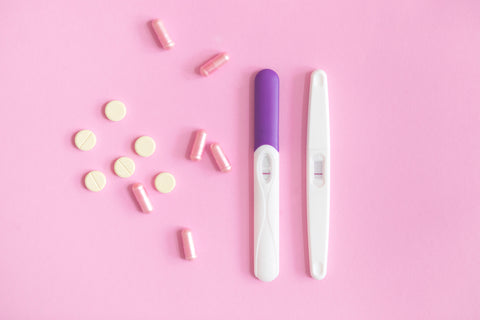
You've undoubtedly wondered how quickly ovulation would happen following discontinuing the pill. Ovulation during the initial cycle upon stopping the pill may take anywhere from a few weeks to months, depending on various circumstances. This includes your health status, the sort of drug you use, and how long you've been taking it.
Generally, ovulation will return approximately two to four weeks after you quit the birth control use. Older ladies and women who have taken the pill for an extended period might need to wait a little longer. Re-establishing a normal ovulation cycle might take many months in certain circumstances. Because calculating the precise return of the initial period will be hard, it is conceivable, though unlikely, to get pregnant without a regular period.
If it is in doubt, get a pregnancy test and visit a physician if you have any concerns or questions. When your menstrual period does not return to normal after several months, see your physician about any health conditions that could be postponed or conflict with your period.
Are You More Fertile After Stopping The Pill?
There is no proof that using the pill has any effect on fertility. There is also no indication that there would be a delay in recovering to ovulation following the stop of using the pill. Moreover, after stopping the pill, numerous women may get menstruation for two to four weeks. The first menstruation after stopping the tablet is withdrawal bleeding. Your next menstruation will be natural after this.
In addition, several women have menstrual irregularities after discontinuing the pill. This is nothing to be concerned about; your normal cycle might require up to three months to reappear. But remember that if you usually suffer from irregular periods, using the pill might mask this. As a result, if you discontinue using the tablet, your irregular periods might resume.
Does It Matter Whether You Get Your Period?
Not always, because some women don't receive their menstruation for many months after discontinuing hormonal contraceptives. Since these methods of birth control alter your hormone levels, this could require time for your body to return to its pre-birth control condition.
However, you could become pregnant during your period. In reality, if you began ovulating soon after stopping contraceptive pills and had unprotected intercourse, you might have become pregnant, delaying your period. Obtain a pregnancy test when you haven't experienced menstruation after stopping your birth control, and you have previously had unprotected intercourse.
When Should You Stop Using Birth Control?
Continue using birth control until you are set to become pregnant. It takes no time for your body to clear birth control hormones. In fact, you may be able to procreate within a couple of months of discontinuing most kinds. If you would like to stop using hormonal birth control but are not ready to become pregnant, employ another technique, such as condoms, until you are ready.
What Should You Do If You Can't Seem to Conceive?
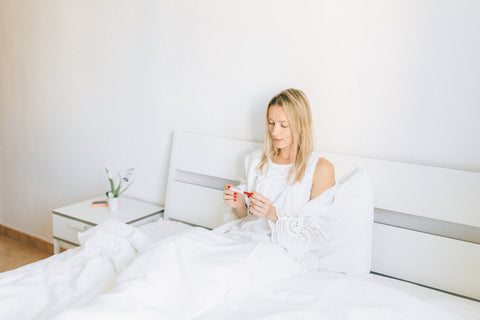
Once you begin trying to conceive and decide to stop birth control, it is always a smart option to consult your physician. While most women conceive within a year of trying, a variety of variables might affect their ovulation, including weight, health history, and age. If you are under 35 and haven't been able to get pregnant after stopping birth control for more than a year, you should talk to your doctor.
Moreover, after six months of trying, you must consult your physician if you are 35 or older. An OB/GYN, a general specialist who knows about women's reproductive health, or a fertility expert could look at you and give you advice that will help you get pregnant.
Conclusion
The usage of birth control in the past does not affect future fertility. However, your approach or technique determines how fast your fertility recovers. Because natural and barrier processes do not affect ovulation, you will be fertile after you quit employing them. Other variables might also affect your fertility. If you experience any worries upon discontinuing birth control, speak with your healthcare practitioner.
To learn more about female fertility, read our Fertility Health Hub here.
Related Period Delay Products
Related Articles to Period Delay
- How to delay your period
- Can stress delay your period?
- How do period delay tablets work?
- Why do I have period pain but no period?
- Is spotting before your period bad?
- How to make your period come faster?
- What is Norethisterone used for?
- What are the signs perimenopause is ending?
- How long after sex can you take a pregnancy test?
- How long does ovulation last?
- Understanding the menstrual cycle
- Signs of ovulation after stopping the pill
- What are contraceptive injections?
- 7 Reasons you have ovulation pain






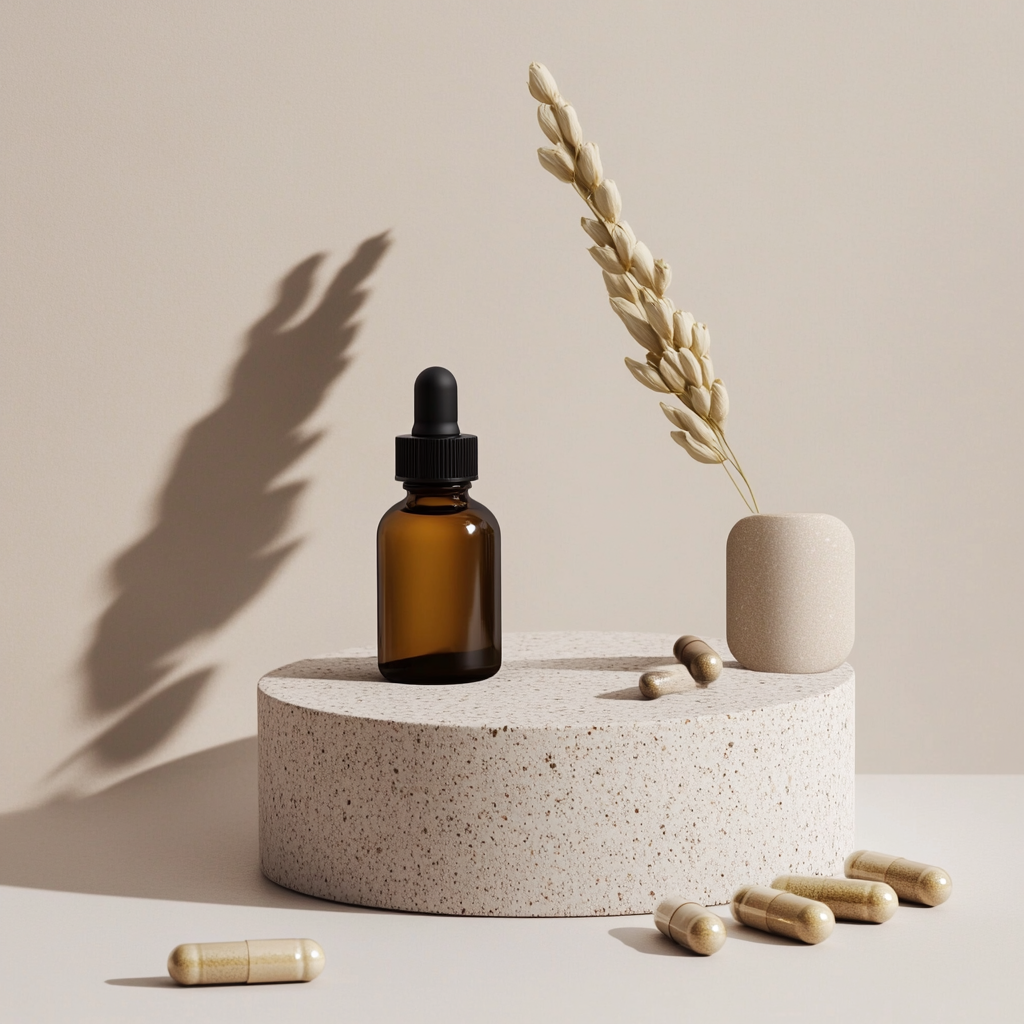
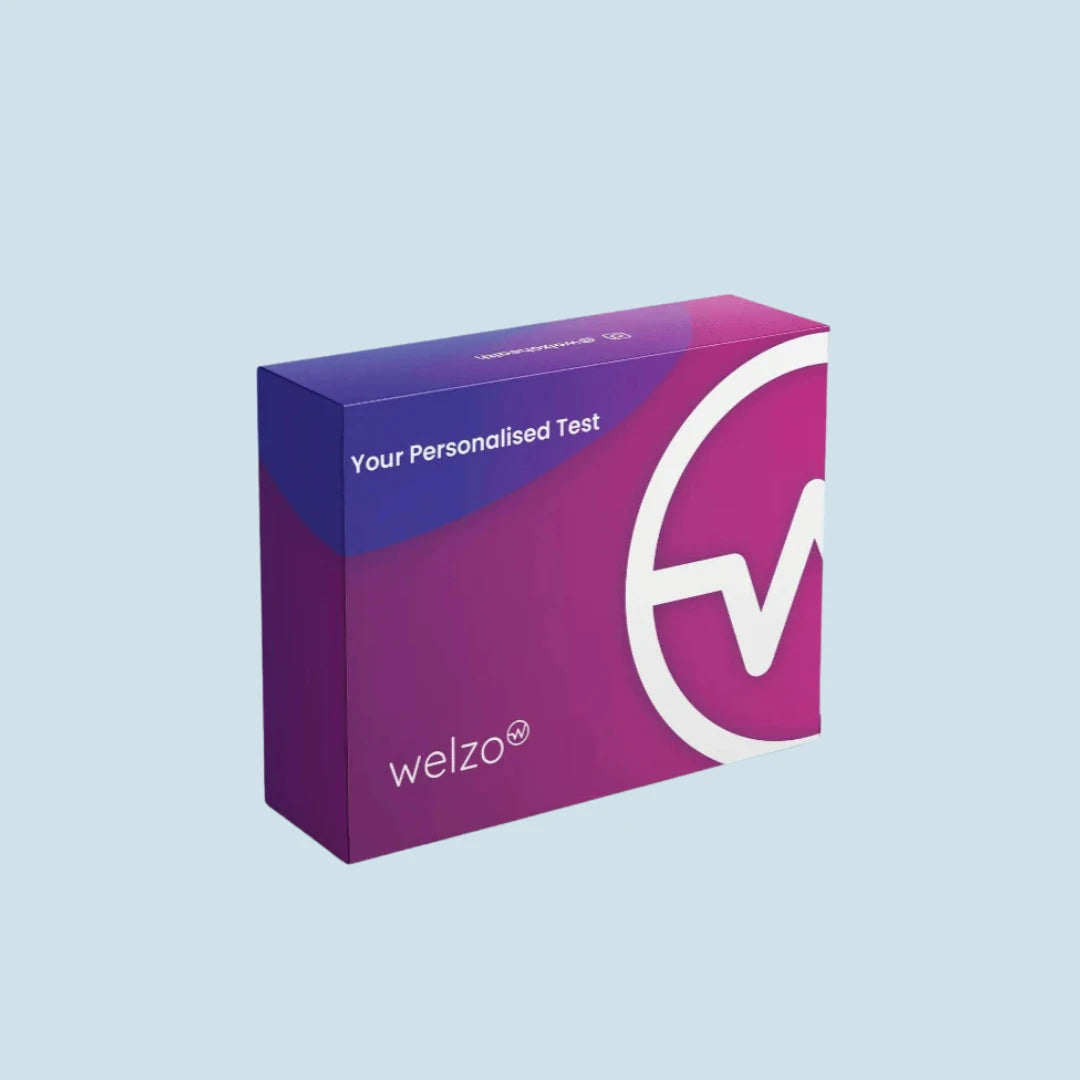












 Rated Excellent by 26,523+ Reviews
Rated Excellent by 26,523+ Reviews